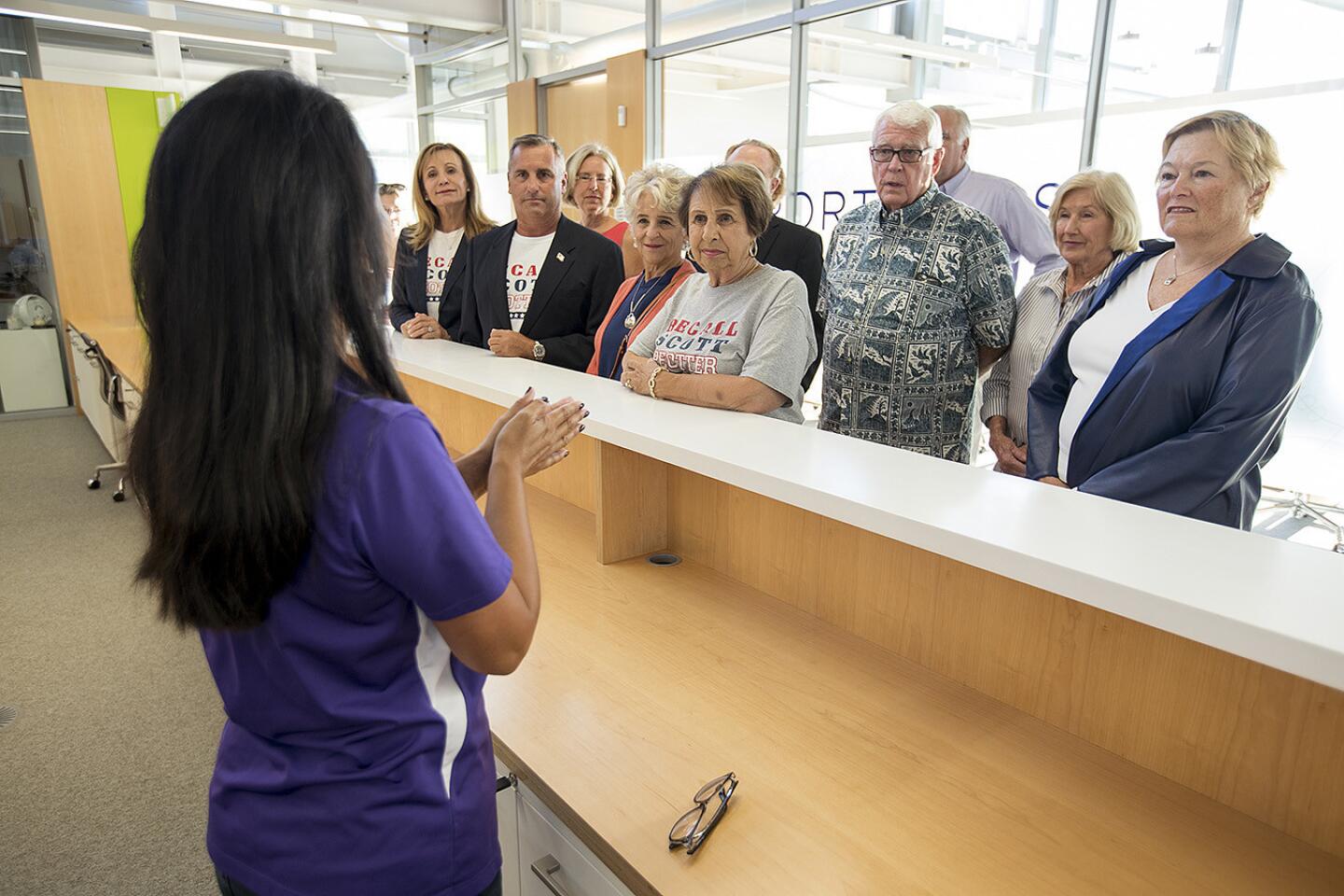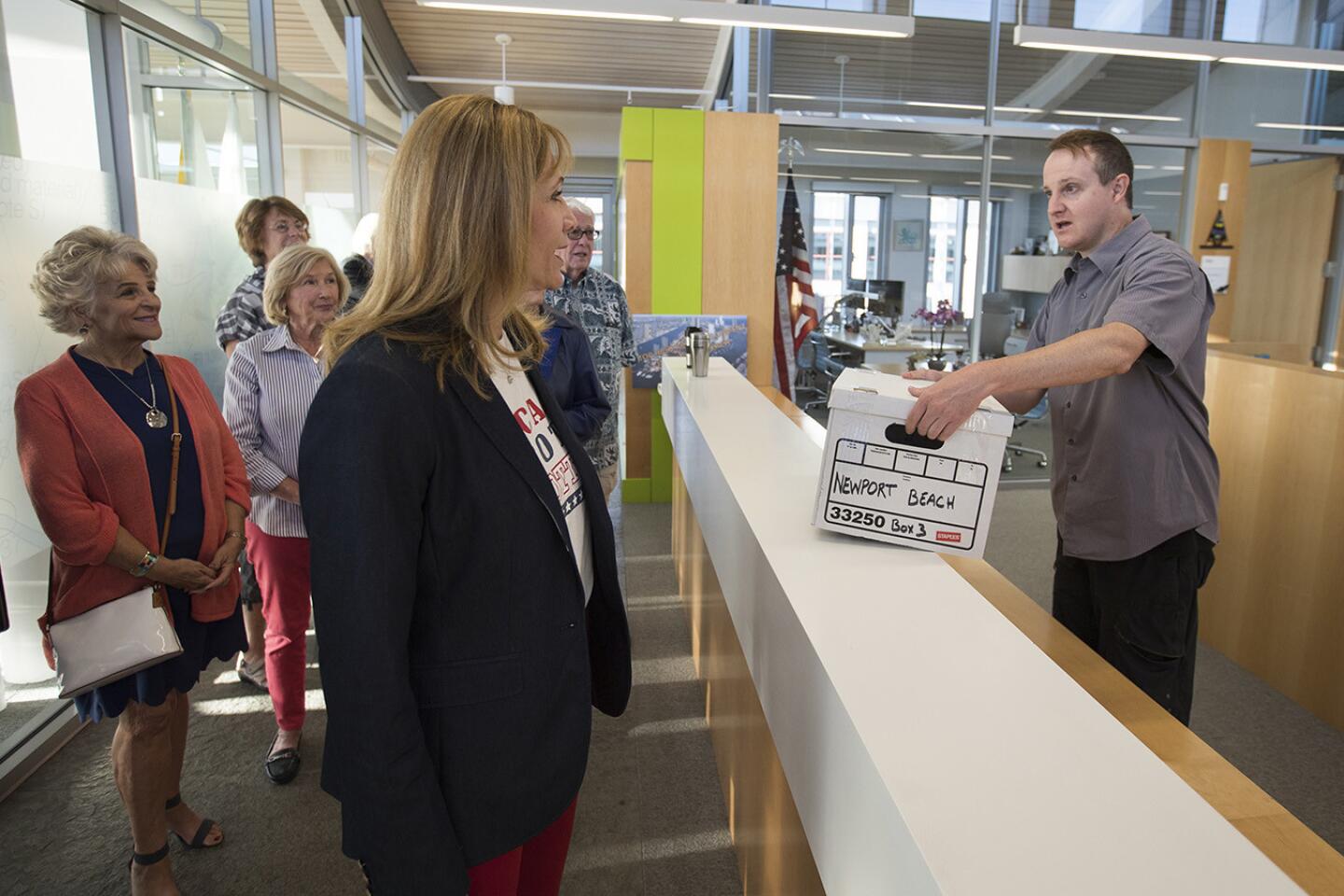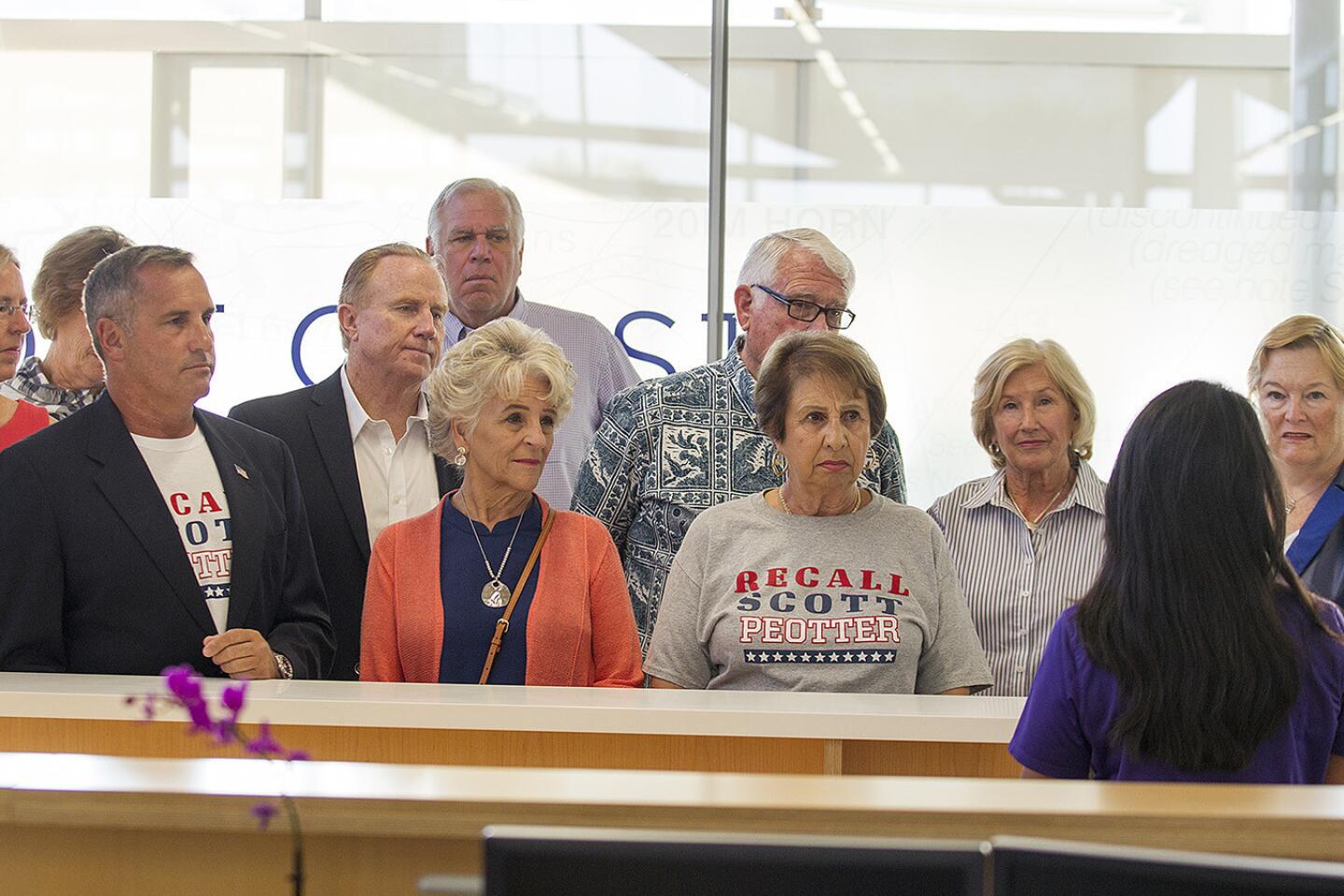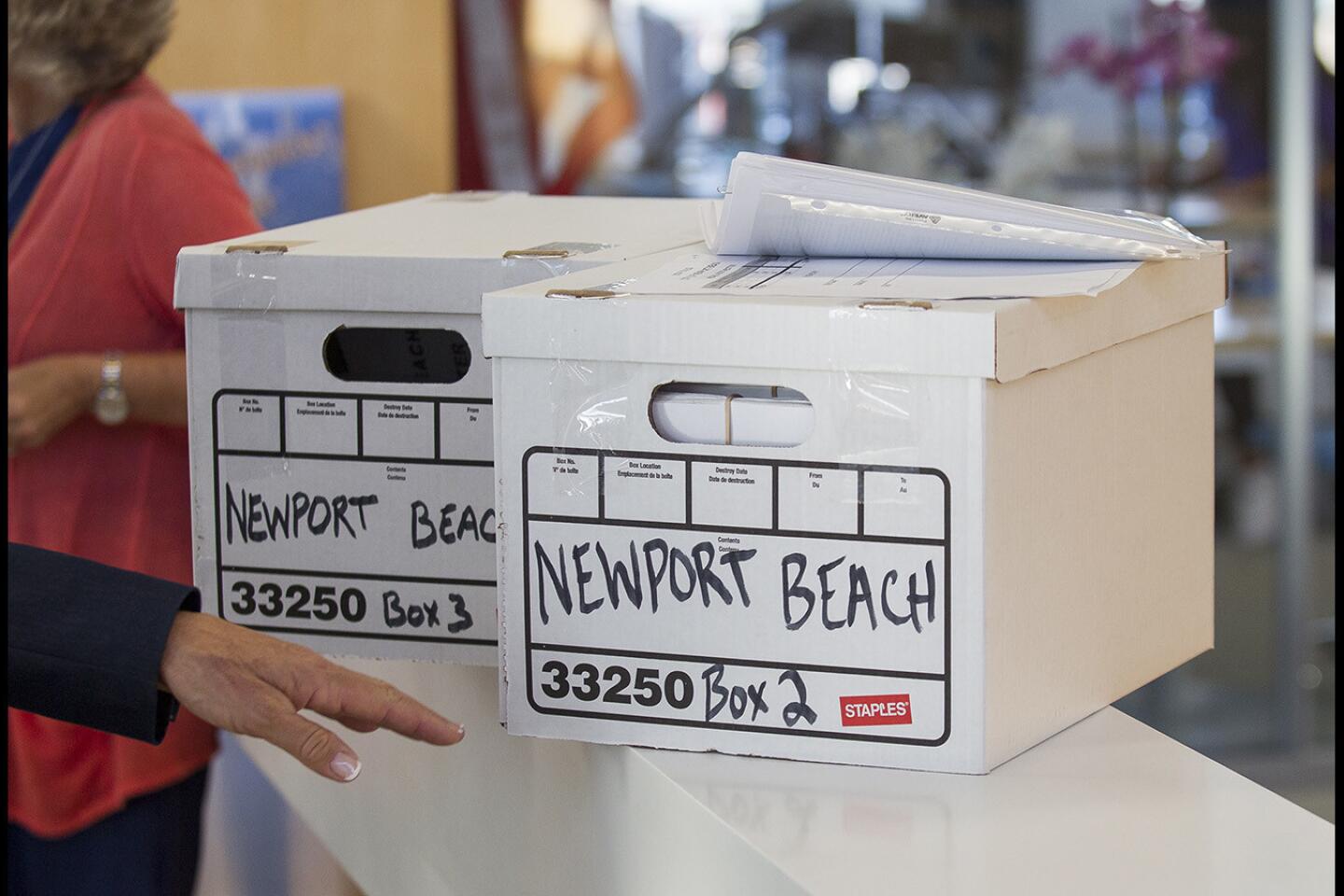Petition to recall Newport Councilman Peotter heads to county with 10,688 signatures
- Share via
Organizers of an effort to recall Newport Beach City Councilman Scott Peotter submitted a petition Friday containing more than 10,000 signatures in support.
The city clerk’s office did a quick count, tallying 10,688 signatures — more than enough to qualify for a special recall election if the Orange County registrar of voters office verifies the signatures’ validity. The registrar will review the petition to ensure that signers are registered Newport Beach voters. If at least 8,445 signatures, representing 15% of the city’s registered voters, pass muster, a recall election could happen as soon as March.
For the record:
12:50 p.m. Oct. 30, 2017This article originally stated that activist group Still Protecting Our Newport led the Museum House referendum effort. Though SPON supported the effort, the petitioning was done by political action committee Line in the Sand.
Peotter, who is scheduled to be up for reelection in November 2018, said Friday that the recall effort is unnecessary, “but I look forward to airing the issues in the election.”
“Bring it on,” he said. “I’ll put up my beliefs against their beliefs any time and leave it to the electorate. I trust the electorate.”
Susan Skinner, one of about 10 people from the Committee to Recall Scott Peotter who dropped off the petition at City Hall, said she was motivated by Peotter’s support of the since-scuttled Museum House high-rise condominium project proposed for Newport Center.
The City Council approved the 25-story condo tower in November before rescinding that support in February when faced with the possibility of a referendum challenging the project. In that case, activist group Line in the Sand, which led the referendum effort, had to present petitions with about 1,000 pages of supporting documents — a decision imposed by the council, Peotter included.
For the recall, the petition pages filled three file boxes. Skinner contrasted that with the 3½-inch thick Museum House petitions, which filled 75 boxes and had to be delivered by trailer.
Skinner said democracy works best when democratic processes are respected, which she said Peotter didn’t do with the Museum House referendum process.
“Scott should face the consequences of his actions,” she said.
The recall committee has cited several issues of policy and civility in seeking Peotter’s recall. In addition to his Museum House support, the group says he has insulted residents and colleagues and makes poor financial decisions for the city.
The latter is a reference to his August vote, along with four other council members, to decline the city’s share of state gas tax revenue in protest of the tax. Peotter, with the other council members, later reversed that vote after public backlash.
Peotter has said he’s being targeted for being “politically incorrect” and that policy disagreements should be addressed when he’s up for reelection next year.
The two sides also disagree about how much a recall election would cost. Recall proponents cite an estimate from the registrar of voters office of $273,000 to $303,000.
In emails to supporters and in other statements, Peotter has pegged the amount at $500,000. He said his figure covers city and county staff work, including the time it takes the registrar’s office to verify the petition signatures.
Recall supporters have been gathering signatures since early June. In addition to staffing tables outside libraries, community centers and markets, they went door to door and made blank petition pages available for people to download, sign and mail in.
Recall proponent Lynn Swain noted that almost as many people signed the petition as voted for Peotter in 2014. The county elections office tallied 11,920 votes for Peotter in a victory over Mike Toerge, who now supports the recall.
The county has 30 business days to certify the recall petition. If enough signatures are cleared, the City Council would receive a notice at its Dec. 12 meeting and have two weeks to set an election date, which must be 88 to 125 business days in the future.
“I’m pretty sure we’ll make it,” Swain said.
Twitter: @Daily_PilotHD
All the latest on Orange County from Orange County.
Get our free TimesOC newsletter.
You may occasionally receive promotional content from the Daily Pilot.












